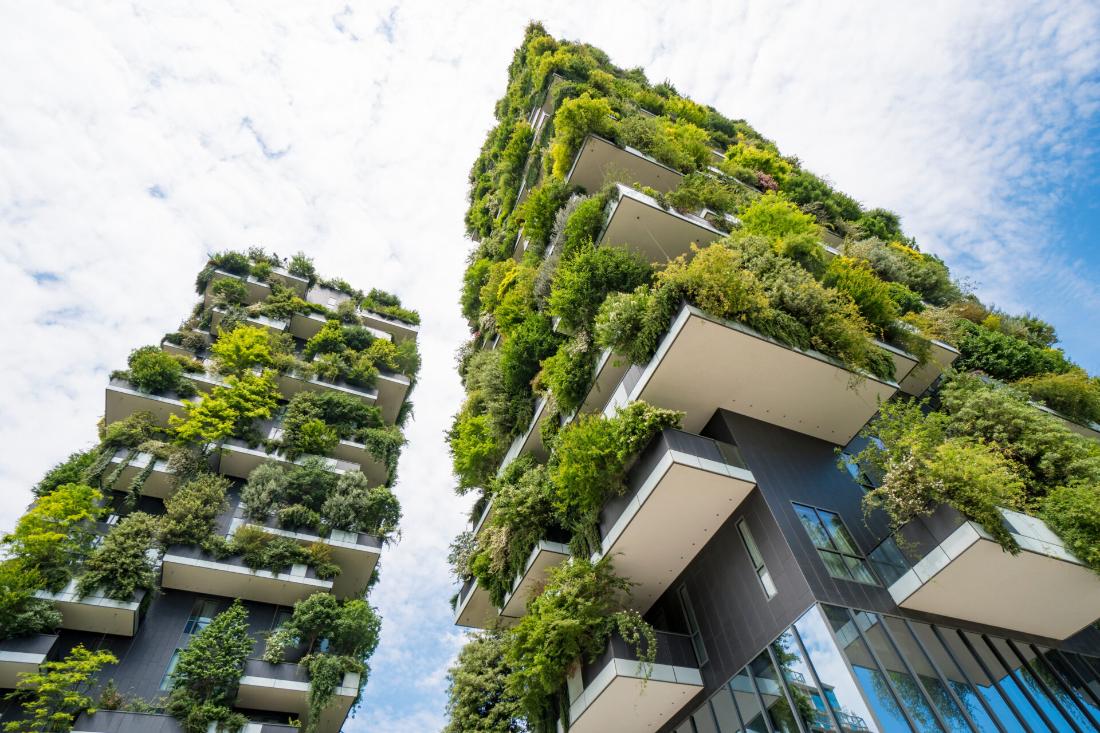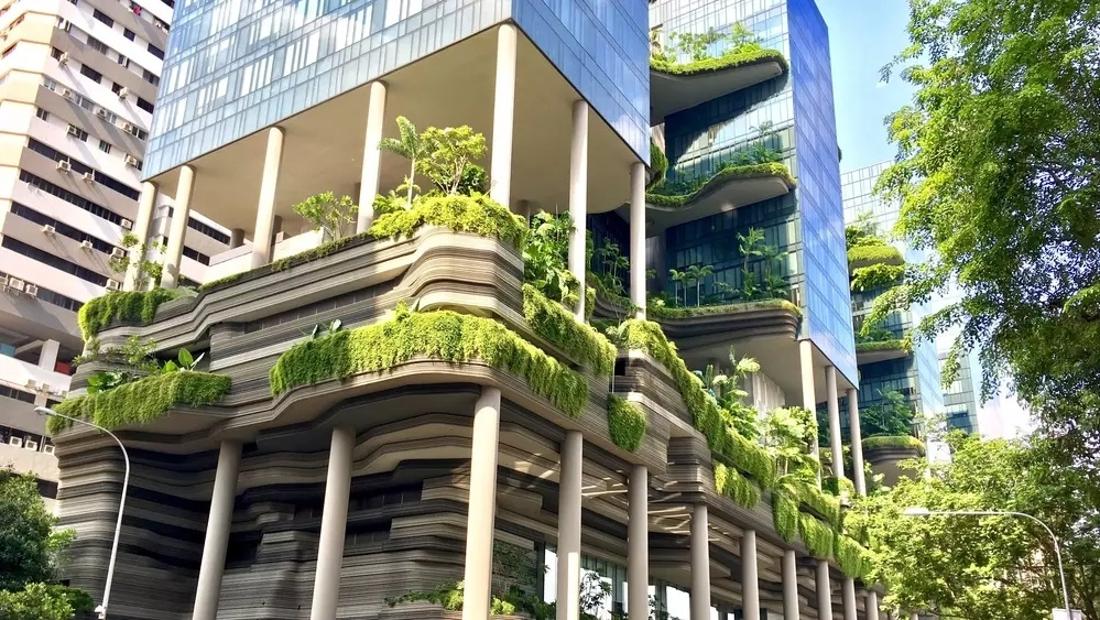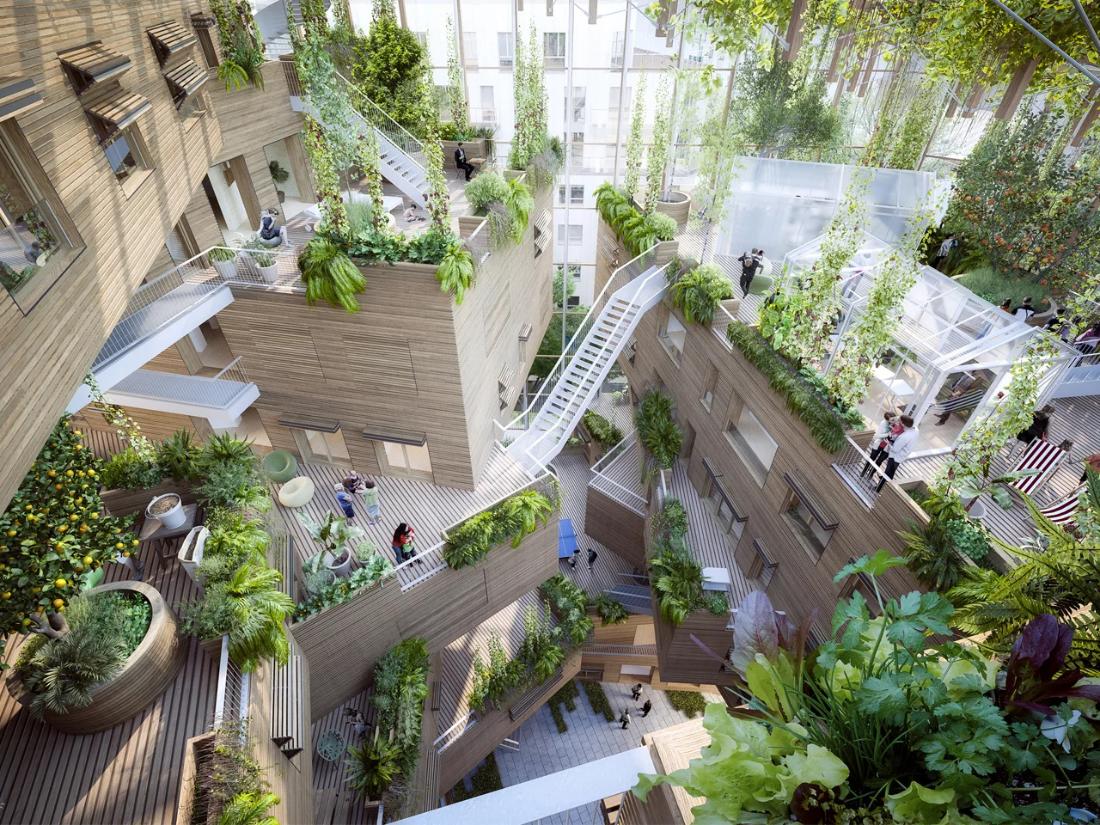Garden
Eco Friendly Building Materials Suppliers in Malaysia | A Sustainable Future
Oct 15 2024
The demand for eco-friendly building materials in Malaysia has grown significantly in recent years, as both developers and consumers become more environmentally conscious. This shift is transforming the construction landscape, encouraging companies to prioritize sustainability and reduce their environmental footprint. If you're in the construction industry, partnering with eco-friendly building materials suppliers can help you stay ahead of the curve. Here's an in-depth look at the importance of sustainable materials, the trends shaping the industry, and how Malaysia is stepping up to lead the way.
Why Eco-Friendly Building Materials Matter
The construction industry is one of the largest contributors to environmental degradation, responsible for high levels of CO2 emissions, resource depletion, and waste generation. However, by choosing eco-friendly materials, developers and builders can significantly reduce their impact on the planet.
Eco-friendly materials offer several benefits:
Energy Efficiency: Materials such as solar panels, insulated roofing, and energy-efficient windows help reduce energy consumption, contributing to long-term savings and lower carbon footprints.
Sustainability: Using recycled materials or responsibly sourced products helps conserve natural resources and ensures the sustainability of construction practices.
Healthier Living Spaces: Non-toxic, low-VOC (volatile organic compound) materials contribute to healthier indoor air quality, benefiting both construction workers and residents.
Waste Reduction: By incorporating materials that can be reused or recycled at the end of their lifecycle, developers help minimize landfill waste.
Why Eco-Friendly Building Materials Matter
The construction industry is one of the largest contributors to environmental degradation, responsible for high levels of CO2 emissions, resource depletion, and waste generation. However, by choosing eco-friendly materials, developers and builders can significantly reduce their impact on the planet.
Eco-friendly materials offer several benefits:
Energy Efficiency: Materials such as solar panels, insulated roofing, and energy-efficient windows help reduce energy consumption, contributing to long-term savings and lower carbon footprints.
Sustainability: Using recycled materials or responsibly sourced products helps conserve natural resources and ensures the sustainability of construction practices.
Healthier Living Spaces: Non-toxic, low-VOC (volatile organic compound) materials contribute to healthier indoor air quality, benefiting both construction workers and residents.
Waste Reduction: By incorporating materials that can be reused or recycled at the end of their lifecycle, developers help minimize landfill waste.
Key Eco-Friendly Building Materials in Malaysia
Malaysia’s construction sector is increasingly adopting eco-friendly materials to meet growing demands for sustainable development. Here are some of the most common types of eco-friendly materials used in Malaysian construction:
Bamboo Bamboo is one of the most sustainable materials in the world, growing rapidly and requiring minimal resources. Its strength and flexibility make it ideal for construction, especially in tropical climates like Malaysia. Bamboo is often used for scaffolding, flooring, and decorative elements.
Recycled Steel Steel is a highly durable material, and when recycled, it reduces the need for new raw materials. Recycled steel is used in structural frameworks, helping to lower the environmental impact of large construction projects while maintaining strength and resilience.
Recycled Concrete Concrete is a staple in construction, but its production is energy-intensive and emits large amounts of CO2. Using recycled concrete in projects helps reduce this impact. This material can be used in roads, pavements, and as foundation filler, making it both versatile and eco-friendly.
Sustainable Timber Malaysia is home to vast rainforests, and responsibly sourced timber from certified suppliers is an excellent eco-friendly building material. It is crucial to use timber that complies with sustainability certifications like the Malaysian Timber Certification Scheme (MTCS), which ensures that forests are managed sustainably.
Green Insulation Materials Eco-friendly insulation materials such as sheep wool, recycled cotton, and cellulose (often made from recycled paper) are gaining popularity in Malaysia. These materials provide excellent thermal insulation, reducing energy consumption for heating and cooling systems in buildings.
Low-VOC Paints Conventional paints often contain harmful VOCs that contribute to indoor air pollution and long-term health problems. Low-VOC and zero-VOC paints, made with natural ingredients, offer a safer alternative for both the environment and people living in the spaces where they are applied.
Malaysia’s construction sector is increasingly adopting eco-friendly materials to meet growing demands for sustainable development. Here are some of the most common types of eco-friendly materials used in Malaysian construction:
Bamboo Bamboo is one of the most sustainable materials in the world, growing rapidly and requiring minimal resources. Its strength and flexibility make it ideal for construction, especially in tropical climates like Malaysia. Bamboo is often used for scaffolding, flooring, and decorative elements.
Recycled Steel Steel is a highly durable material, and when recycled, it reduces the need for new raw materials. Recycled steel is used in structural frameworks, helping to lower the environmental impact of large construction projects while maintaining strength and resilience.
Recycled Concrete Concrete is a staple in construction, but its production is energy-intensive and emits large amounts of CO2. Using recycled concrete in projects helps reduce this impact. This material can be used in roads, pavements, and as foundation filler, making it both versatile and eco-friendly.
Sustainable Timber Malaysia is home to vast rainforests, and responsibly sourced timber from certified suppliers is an excellent eco-friendly building material. It is crucial to use timber that complies with sustainability certifications like the Malaysian Timber Certification Scheme (MTCS), which ensures that forests are managed sustainably.
Green Insulation Materials Eco-friendly insulation materials such as sheep wool, recycled cotton, and cellulose (often made from recycled paper) are gaining popularity in Malaysia. These materials provide excellent thermal insulation, reducing energy consumption for heating and cooling systems in buildings.
Low-VOC Paints Conventional paints often contain harmful VOCs that contribute to indoor air pollution and long-term health problems. Low-VOC and zero-VOC paints, made with natural ingredients, offer a safer alternative for both the environment and people living in the spaces where they are applied.
Key Suppliers of Eco-Friendly Building Materials in Malaysia
Several Malaysian companies are leading the charge in supplying eco-friendly building materials, offering a range of products that cater to different construction needs. Some of these suppliers include:
ECOLITE
ECOLITE specializes in sustainable and energy-efficient construction materials, such as lightweight concrete blocks and panels made from recycled content. Their products are designed to reduce construction time and energy consumption while ensuring durability and thermal insulation.
Rex-Brite Sdn Bhd
This company focuses on providing eco-friendly construction solutions, including energy-saving insulation materials and recycled building components. They promote the use of materials that help reduce a building's carbon footprint and enhance energy efficiency.
Hap Seng Building Materials
As one of Malaysia's leading suppliers of construction materials, Hap Seng offers sustainable products such as eco-friendly cement and concrete. Their green products contribute to lower CO2 emissions during the construction process, and they advocate for the use of sustainable materials in large infrastructure projects.
PolyGlass Fiber Sdn Bhd
PolyGlass Fiber is known for producing environmentally-friendly insulation materials. Their glass wool insulation, made from recycled glass, is widely used in construction projects across Malaysia for its superior thermal and acoustic properties.
Government Initiatives Promoting Green Construction
The Malaysian government has been actively promoting green construction initiatives in line with its goal of achieving carbon neutrality by 2050. Several policies and programs encourage the use of eco-friendly materials and sustainable building practices, including:
Green Building Index (GBI): This is Malaysia’s national green certification system, aimed at promoting sustainable building design and construction. Buildings that meet GBI standards must use eco-friendly materials, energy-efficient systems, and other green practices. Certification provides a significant incentive for developers and architects to embrace eco-friendly construction.
Low Carbon Cities Framework (LCCF): The LCCF is a governmental initiative that encourages the development of cities that produce low greenhouse gas emissions. The framework emphasizes the use of green materials and sustainable urban planning.
Incentives for Green Technology: The Malaysian government offers financial incentives to companies that invest in green technologies and sustainable practices, further encouraging the adoption of eco-friendly building materials.
The Future of Eco-Friendly Construction in Malaysia
As environmental concerns become more pressing, the demand for eco-friendly building materials will continue to grow. Malaysia is well-positioned to become a leader in sustainable construction, with its wealth of natural resources, supportive government policies, and a growing network of suppliers dedicated to green materials.
The future of construction lies in the adoption of materials and practices that reduce environmental impact while enhancing building performance. For developers, builders, and consumers in Malaysia, eco-friendly building materials are not just an option—they are quickly becoming a necessity for those looking to create structures that are both functional and sustainable.
Conclusion
Eco-friendly building materials are transforming Malaysia's construction industry, offering sustainable alternatives that benefit both the environment and those who inhabit the buildings. From bamboo and recycled steel to low-VOC paints and green insulation, the range of materials available today allows developers to build responsibly without compromising on quality or aesthetics. By partnering with suppliers who prioritize sustainability, the Malaysian construction sector is paving the way for a greener, more resilient future.
Several Malaysian companies are leading the charge in supplying eco-friendly building materials, offering a range of products that cater to different construction needs. Some of these suppliers include:
ECOLITE
ECOLITE specializes in sustainable and energy-efficient construction materials, such as lightweight concrete blocks and panels made from recycled content. Their products are designed to reduce construction time and energy consumption while ensuring durability and thermal insulation.
Rex-Brite Sdn Bhd
This company focuses on providing eco-friendly construction solutions, including energy-saving insulation materials and recycled building components. They promote the use of materials that help reduce a building's carbon footprint and enhance energy efficiency.
Hap Seng Building Materials
As one of Malaysia's leading suppliers of construction materials, Hap Seng offers sustainable products such as eco-friendly cement and concrete. Their green products contribute to lower CO2 emissions during the construction process, and they advocate for the use of sustainable materials in large infrastructure projects.
PolyGlass Fiber Sdn Bhd
PolyGlass Fiber is known for producing environmentally-friendly insulation materials. Their glass wool insulation, made from recycled glass, is widely used in construction projects across Malaysia for its superior thermal and acoustic properties.
Government Initiatives Promoting Green Construction
The Malaysian government has been actively promoting green construction initiatives in line with its goal of achieving carbon neutrality by 2050. Several policies and programs encourage the use of eco-friendly materials and sustainable building practices, including:
Green Building Index (GBI): This is Malaysia’s national green certification system, aimed at promoting sustainable building design and construction. Buildings that meet GBI standards must use eco-friendly materials, energy-efficient systems, and other green practices. Certification provides a significant incentive for developers and architects to embrace eco-friendly construction.
Low Carbon Cities Framework (LCCF): The LCCF is a governmental initiative that encourages the development of cities that produce low greenhouse gas emissions. The framework emphasizes the use of green materials and sustainable urban planning.
Incentives for Green Technology: The Malaysian government offers financial incentives to companies that invest in green technologies and sustainable practices, further encouraging the adoption of eco-friendly building materials.
The Future of Eco-Friendly Construction in Malaysia
As environmental concerns become more pressing, the demand for eco-friendly building materials will continue to grow. Malaysia is well-positioned to become a leader in sustainable construction, with its wealth of natural resources, supportive government policies, and a growing network of suppliers dedicated to green materials.
The future of construction lies in the adoption of materials and practices that reduce environmental impact while enhancing building performance. For developers, builders, and consumers in Malaysia, eco-friendly building materials are not just an option—they are quickly becoming a necessity for those looking to create structures that are both functional and sustainable.
Conclusion
Eco-friendly building materials are transforming Malaysia's construction industry, offering sustainable alternatives that benefit both the environment and those who inhabit the buildings. From bamboo and recycled steel to low-VOC paints and green insulation, the range of materials available today allows developers to build responsibly without compromising on quality or aesthetics. By partnering with suppliers who prioritize sustainability, the Malaysian construction sector is paving the way for a greener, more resilient future.


